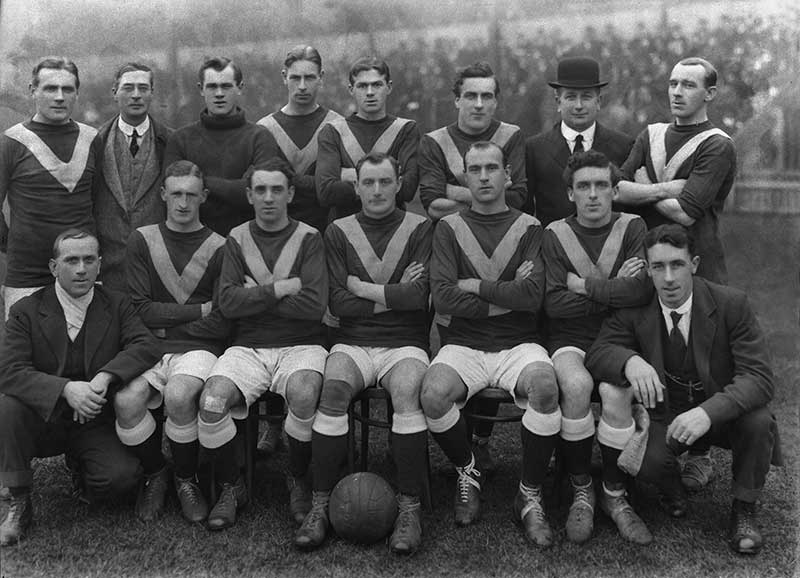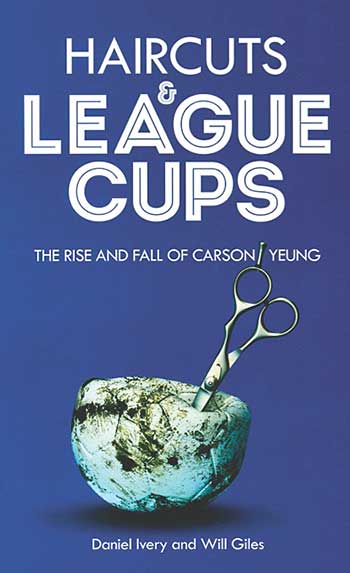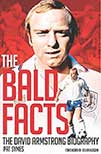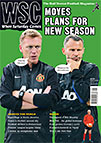
Search: 'finances'
Stories
The Sky Blues are without a win in the league, their Ricoh Arena rental deal is due to expire and the category two status of their academy is under threat
 The rise and fall of Carson Yeung
The rise and fall of Carson Yeung
by Daniel Ivery & Will Giles
GHI HK Ltd, £20
Reviewed by Chris Sanderson
From WSC 339 May 2015
English football’s wholehearted embrace of the free market has meant that the sense of place and identity that clubs once provided their fans is increasingly meaningless to owners and administrators. Of course, the game here has always been dominated by a handful of wealthy clubs and provided a platform for the likes of Bob Lord, Robert Maxwell, Doug Ellis et al to use clubs as their personal playthings. But as the history of English football since 1992 has been one of untold riches and a wholehearted embrace of laissez-faire economics, so it has likewise seen a wholesale loosening of the links between the clubs and their communities. And as fans of teams as diverse as Leeds, Portsmouth and Coventry can testify, their acquisition by owners who have little regard for their club’s history or supporters has rarely been positive.
Haircuts & League Cups tells the cautionary tale of how Carson Yeung, a former Hong Kong hair stylist who made a personal fortune through gambling and stock market speculation, came to purchase the heroically underachieving Birmingham City.
As the sum Yeung’s consortium paid – a frankly ridiculous £81.5 million – was hardly questioned at the time, so the book is less a narrative of one man’s ownership of a club but more an exposé of the willingness of the football authorities, media and initially Blues fans themselves to wilfully ignore his financial shortcomings. Meticulously written by Daniel Ivery, whose excellent Often Partisan website is regularly the sole source of reliable and verifiable information on the club, and Hong Kong solicitor Will Giles, the story throws light on the murky nature of football finances and the profound effect that decisions made thousands of miles away can have on fans.
Yeung aside, the book includes a cast of pantomime villains that range from Birmingham’s previous owners (Davids Gold and Sullivan), the Premier and Football Leagues and above all Yeung’s acolyte Peter Pannu. Indeed since publication, this litigious former Hong Kong policeman has posted a series of offensive, rambling posts on Often Partisan, that may well be the catalyst for the change in ownership that Blues fans so desperately desire.
When sentenced to six years in prison for money laundering, Yeung was described as someone who was “prepared to, and did, lie whenever he felt the need to”. It is to Ivery’s credit that his single-handed and determined work has unravelled his story and produced a factual document that exposes not just the current plight of Birmingham City but the shortcomings of English football more generally. As Ivery and Giles say: “The Football League will not even talk to the media about how they police the game, preferring to hide behind soundbites. Football has become a honeypot for investors looking for a quick buck. Add in the additional element of international transfers which involve numerous unregulated intermediaries, then you can easily understand why it is attractive to money launderers.” It’s a cautionary tale of which fans of all clubs should be mindful.
 The David Armstrong biography
The David Armstrong biography
by David Armstrong
with Pat Symes
Pitch Publishing, £17.99
Reviewed by Harry Pearson
From WSC 324 February 2014
There was always something a little Dickensian about Middlesbrough and Southampton midfielder David Armstrong. Small, prematurely bald, slightly portly with a face that fell naturally into an expression of melancholy, he was more Oliver Twist than the 1970s footballer of popular mythology. Even his nickname Spike has a whiff of the Victorian workhouse about it.
The nickname, it transpires, was given to him by Middlesbrough team-mate Basil Stonehouse for no other reason than that Stonehouse thought someone in the squad should have it. It’s the kind of anticlimactic tale that seems to have characterised Spike’s career. A hard-working left-sided player and an excellent passer and crosser, Armstrong scored over 100 goals from midfield and was so robust at times he seemed indestructible (he made 356 consecutive appearances for Boro).
He was not a dribbler though, nor was he quick, both of which counted against him when it came to international honours – he was only capped twice by his country. Trophies too eluded him. At Ayresome Park Jack Charlton’s reluctance to spend money – faced with a choice between Trevor Francis or Alf Wood, Big Jack opts, naturally, for the latter – scotches Middlesbrough’s chances of silverware, while Southampton fall agonisingly short of a Double in 1983-84 with Armstrong playing in all 51 games.
While other footballers’ autobiographies are often brimming with bitterness or rancour, The Bald Facts is tinged with sadness and regret. Armstrong’s career ended by an ankle injury that was treated in so bungling a manner the player is barely able to stand up for several years, his finances in tatters, you come away from reading it with the impression that the midfielder feels let down, not necessarily by individuals, but by the game itself.
As is too often the case the player’s unworldliness has hardly helped his cause. You don’t need to be a genius to realise that when you are going to court for an alimony hearing driving into the car park in a brand new red Mercedes is not the best idea. That’s what Armstrong does though. The results are predictable – his wife gets the house and whacking great yearly maintenance payments. “I came out of that court and burst pathetically into tears,” Spike records. There are a lot of tears in these pages, the odd laugh too, and a rather puzzling story about dognapping and Joe Laidlaw. Ultimately though there’s a sense of promise unfulfilled and of tales half told.
I started reading The Bald Facts during the hullabaloo that followed FA chairman Greg Dyke’s comments on the number of foreign players in the Premier League weakening the national team. Armstrong, of course, played when there were very few non-British professionals in the English top flight so it is instructive to see the midfield Ron Greenwood selected for the game against West Germany in 1982. Alongside Armstrong were Alan Devonshire, Ricky Hill and Ray Wilkins. Is that the sort of line-up that would strike fear into the hearts of the current Spanish, German or Brazilian sides?
 Gary Andrews explains how 3G pitches are becoming a more attractive option for non-League clubs, despite resistance from the FA
Gary Andrews explains how 3G pitches are becoming a more attractive option for non-League clubs, despite resistance from the FA
As the 2012-13 non-League season reached its climax, plenty of clubs will have envied Maidstone United. This wasn’t due to the Stones’ league position – they finished second in the Isthmian League Division One South and were promoted through the play-offs – but instead it was because of their 3G pitch, which registered just one postponement during the season. Non-League is more susceptible to bad weather than higher divisions but even allowing for the inevitable winter postponements, this year’s extended cold snap, snow and rain led to huge fixture pile-ups across the divisions, as reported in WSC 314.